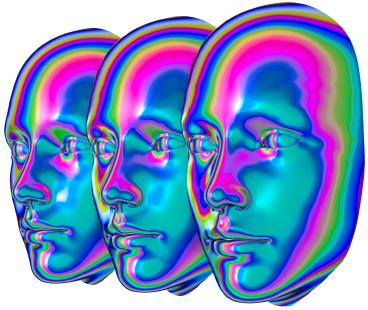Home > จิตวิทยาการเทรด > สัญชาตญาณในการเทรด
โดยแนวคิดนี้อ้างว่าปัจจัยเหล่านี้อาจส่งผลให้เกิดพฤติกรรมต่างๆ เช่น การคิดแบบมีอคติเอนเอียง, การตัดสินใจอย่างไร้เหตุผล หรือการกระทำสิ่งแย่ๆ ลงไปโดยไม่คาดคิด นอกจากนี้จิตวิทยาการเทรดยังเน้นถึงความสำคัญของการตระหนักรู้ในตนเอง การบริหารความเสี่ยงอย่างมีประสิทธิภาพ การควบคุมอารมณ์ และการรักษากรอบความคิดให้สมดุลเพื่อจัดการกับความเครียดในการเทรดและดำเนินการตัดสินใจอย่างมีเหตุผล
สัญชาตญาณในการเทรดถือเป็นองค์ประกอบสำคัญของจิตวิทยาการเทรดของแต่ละบุคคล โดยสัญชาตญาณเหล่านี้หมายความถึงความรู้สึกหรือสัญชาตญาณของเทรดเดอร์ที่มักมีการพัฒนาเมื่อเวลาผ่านไปหรือเมื่อผ่านประสบการณ์การเทรด ซึ่งปกติแล้วสัญชาตญาณเหล่านี้มักเกิดขึ้นจากการเรียนรู้และฝึกฝนอย่างต่อเนื่อง ทั้งยังต้องอาศัยการติดตามข่าวสารเกี่ยวกับตลาดและเหตุการณ์ และตัวชี้วัดทางเศรษฐกิจต่างๆ ด้วย
คุณจะสามารถเชื่อในสัญชาตญาณการเทรดของตนได้ก็ต่อเมื่อมีความตระหนักรู้ในตนเอง กล่าวคือคุณจะต้องสามารถแยกแยะความต่างระหว่างการตัดสินใจโดยอาศัยข้อมูลที่ครบถ้วนสมเหตุสมผลกับการตัดสินใจที่ขับเคลื่อนด้วยอารมณ์และความรู้สึกได้ ทั้งนี้เป็นที่เข้าใจได้ว่าเส้นแบ่งระหว่างภววิสัยความไม่มีอคติ (objectivity) และอัตวิสัยความรู้สึกส่วนตัว (subjectivity) นั้นสามารถบิดเบี้ยวได้ง่าย การหาวิธีจำแนกวิสัยทั้งสองออกจากกันจึงถือเป็นสิ่งสำคัญต่อการตัดสินใจที่ประสบความสำเร็จ
สัญชาตญาณในการเทรดมักได้รับผลกระทบจากปรากฏการณ์ทางจิตวิทยา 3 ประการ เรามาสำรวจรายละเอียดเหล่านี้กัน
อคติจากการอาศัยประสาทสัมผัสมาจากความคิดที่ว่าเราสร้างความคิดเห็นโดยใช้ข้อมูลที่อาจมีอคติ ปกติแล้วคนเรามีการรวบรวมข้อมูลจากแหล่งต่างๆ รอบตัวเราอย่างต่อเนื่อง ซึ่งการกระทำนี้เป็นสิ่งที่ช่วยให้เราสามารถดำเนินการสิ่งต่างๆ ได้ในแต่ละวัน ทั้งยังช่วยให้เราเกิดการเรียนรู้ขึ้นด้วย
อคติจากการอาศัยประสาทสัมผัสมาจากความคิดที่ว่าเราสร้างความคิดเห็นโดยใช้ข้อมูลที่อาจมีอคติ ปกติแล้วคนเรามีการรวบรวมข้อมูลจากแหล่งต่างๆ รอบตัวเราอย่างต่อเนื่อง ซึ่งการกระทำนี้เป็นสิ่งที่ช่วยให้เราสามารถดำเนินการสิ่งต่างๆ ได้ในแต่ละวัน ทั้งยังช่วยให้เราเกิดการเรียนรู้ขึ้นด้วย

แนวคิดนี้หมายถึงความกลัวในสิ่งที่ไม่รู้ ซึ่งเป็นผลให้เกิดการกระทำโดยหลีกเลี่ยงสิ่งที่เราไม่รู้ สิ่งที่ไม่คุ้นเคย สิ่งที่อาจ (หรืออาจจะไม่) เกิดขึ้น ในโลกของการเทรด พฤติกรรมประเภทนี้อาจนำไปสู่การยอมรับความเสี่ยงที่ต่ำมาก และทำให้ผลลัพธ์ทางการเงินไม่ดีไม่มีกำไร ทั้งนี้สาเหตุที่ทำให้เกิดการหลีกเลี่ยงสิ่งที่คลุมเครือนั้นมีอยู่หลายประการ
ความกลัวการสูญเสียเงินอาจเป็นเหตุผลหนึ่ง แต่อีกเหตุผลที่ไม่ค่อยเป็นที่ทราบกันก็คือความกลัวในการทำรายได้ เนื่องจากเทรดเดอร์อาจกลัวว่าพวกเขาจะสูญเสียผลกำไรไป ไม่ว่าจะผ่านภาระผูกพันทางภาษีหรือโดยวิธีอื่นก็ตาม เช่น ความผันผวนของตลาดที่รุนแรง

การคาดหวังความเป็นรูปธรรมมักเกิดขึ้นเวลาที่ความรู้สึกของการคาดหวังกลายเป็นจุดสนใจ แทนที่จะบรรลุสิ่งที่คาดหวังไว้ตั้งแต่ต้น
ความรู้สึกคาดหวังนั้นอาจกินเวลามากจนแทบจะกลายเป็นความเสพติดที่ทำให้เทรดเดอร์มองข้ามการบรรลุเป้าหมายที่พวกเขาคาดหวังไว้ สิ่งที่น่าสังเกตคือ ความคาดหวังไม่เพียงได้รับอิทธิพลจากการวิเคราะห์ในเชิงภววิสัยเท่านั้น หากแต่ยังได้รับอิทธิพลจากจิตวิทยาโดยรวมของผู้เข้าร่วมตลาดด้วย

ขอบคุณสําหรับการเยี่ยมชม T4Trade
เว็บไซต์นี้ไม่ได้มุ่งเป้าไปที่ผู้อยู่อาศัยในสหภาพยุโรปและอยู่นอกกรอบการกํากับดูแลของยุโรปและ MiFID II
โปรดคลิกด้านล่างหากคุณต้องการดําเนินการต่อไปยัง T4Trade ต่อไป
ขอบคุณสําหรับการเยี่ยมชม T4Trade
This website is not directed at UK residents and falls outside the European and MiFID II regulatory framework, as well as the rules, guidance and protections set out in the UK Financial Conduct Authority Handbook.
โปรดคลิกด้านล่างหากคุณต้องการดําเนินการต่อไปยัง T4Trade ต่อไป